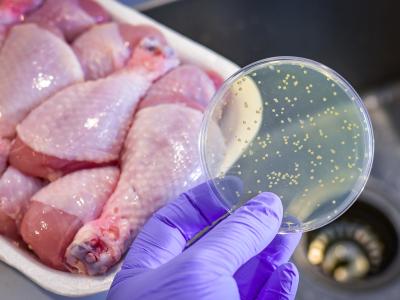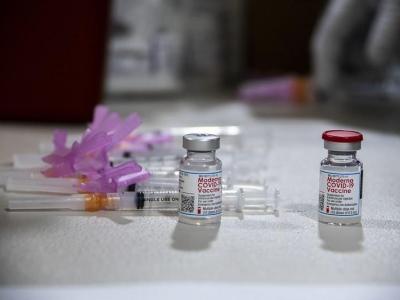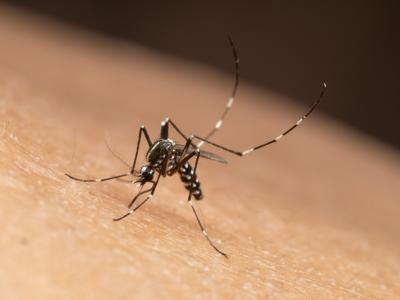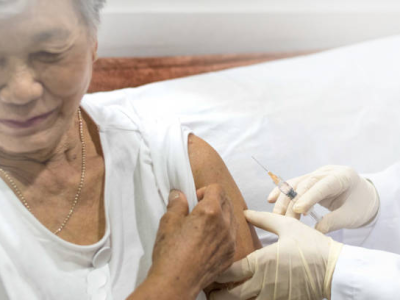Sierra Leone confirms more Ebola cases, disease tops WHA agenda
After going 8 days without an Ebola case, Sierra Leone since May 14 has seen a trickle of newly confirmed cases, including 2 from Port Loko, 3 from Western Area Urban, and 1 from Kambia, the United Nations Mission for Ebola Emergency Response (UNMEER) said today in an update. The spate of new cases in Sierra Leone comes on the heels of a report of 1 new case in Sierra Leone and 15 new cases in Guinea noted in UNMEER's previous update on May 15.
In today's update, UNMEER said Guinea's recently reported cases are in Boke and Dubreka districts, and responders are boosting contact tracing activities, especially efforts to find missing contacts. It also noted that several instances of community resistance have been recently reported from Dubreka, with some communities now allowing access to responders. In one incident, a Red Cross team beaten.
Meanwhile, the response to global health emergencies such as Ebola wove through opening addresses today at the World Health Assembly (WHA) in Geneva. The slow and uneven response by the World Health Organization (WHO) and other health groups to the Ebola outbreak in West Africa laid bare major gaps in the world's ability to respond to health crises.
Based on those concerns, the WHO's executive board in January proposed several reforms that the WHA is set to consider, such as a contingency fund and a global health workforce. Also, an independent review group commissioned by the WHO recently published its report and made several recommendations, including increased investments to allow the WHO to improve its operational capacity.
German chancellor Angela Merkel, in her address to delegates today, said the WHO is the only international group with universal political legitimacy on global health issues, and she called for a new plan to address catastrophic events. WHO Director-General Margaret Chan, MD, MPH, also addressed the group today, calling for a single new WHO program that would integrate outbreak and emergency resources across three levels of the group.
"I have heard what the world expects from WHO, and we will deliver," she told the group, according to a WHO press release.
May 18 UNMEER situation report
May 18 WHO press release
WHO: Niger's meningitis outbreak unprecedented
The WHO on May 15 said Niger's meningococcal meningitis outbreak is still spreading rapidly and is unprecedented, because cases have triples over the last 2 weeks and the event is the first large-scale epidemic to involve Neisseria meningitides serogroup C to hit Africa's meningitis belt.
From Jan 1 to May 12, Niger's health ministry has reported 6,179 suspected cases, along with 423 deaths. The numbers are sharply up from the 1,543 suspected cases and 147 deaths the WHO reported in its last update on the outbreak on Apr 29.
Cases in 11 of the country's 36 districts have passed the epidemic threshold, including 5 in the capital city of Niamey, where 4,099 suspected cases and 226 deaths have been reported. The WHO said the outbreak is concerning, because it is occurring in a densely populated urban area that is home to more than 1 million people, posing a high risk of spread and large numbers of cases.
The WHO said N meningitidis serogroup C is the predominant strain, though labs have identified serogroup W in several samples. The agency said serogroup C has been the main cause of meningitis in wealthy countries but has never been a concern in Africa, causing only sporadic cases or a few localized outbreaks involving mixed serogroup A and C that occurred in Nigeria in 1975, Niger in 1991, and Nigeria in 2013 to 2014.
The outbreak is also alarming, because it is the first one of its size caused by serogroup C—and vaccines against that strain are in short supply. So far an international vaccine coordinating group has approved four vaccine requests, which include 460,000 doses of an older polysaccharide vaccine that protects against the A, C, and W serogroups and 200,000 doses of a new conjugate vaccine that protects against A, C, W, and Y serogroups. Niger's government has also obtained 200,000 doses of polysaccharide vaccine from Mali.
No other polysaccharide vaccines are available outside the coordinating group's stockpile, and the WHO has negotiated with vaccine makers to begin the urgent production of multivalent polysaccharide vaccines.
May 15 WHO update
Diagnostic errors linked to incorrect antibiotic use
Inaccurate diagnoses are one of the factors that lead to incorrect antibiotic use that plays a role in development of antibiotic resistance, according to Minnesota researchers who looked at 500 inpatient records at the Minneapolis Veterans Affairs Medical Center (VAMC). Investigators published their findings in Infection Control and Hospital Epidemiology.
They looked at and categorized cases to determine if the antimicrobial course that doctors prescribed was accurate and whether the antimicrobial drugs prescribed were appropriate. The researchers found that 95% of patients with an incorrect or indeterminate diagnosis were given inappropriate antibiotics. However, only 38% of those with a correct diagnosis were incorrectly prescribed antibiotics.
Overall, they found that only 58% of patients got a correct diagnosis, signifying that errors may be more common than other studies not related to antimicrobial use have found.
Factors that might lead to misdiagnosis could include healthcare workers relying on intuition rather than analytical processes, fatigue or heavy workload, patients coming in with diagnoses from other providers, and gaps in clinical experience with adverse events, the authors wrote.
The team concluded that the inappropriate antibiotic use contributes to antibiotic resistance, clinical failure, adverse drug events, and excessive costs.
In a press release from the journal's publisher, the Society of Healthcare Epidemiology of America (SHEA), Greg Filice, MD, lead author of the study and infectious disease specialist at the Minneapolis VAMC, said, "The findings suggest that antimicrobial stewardship programs could be more impactful if they were designed to help providers make accurate initial diagnoses and to know when antibiotics can be safely withheld."
May 18 Infect Control Hosp Epidemiol abstract
May 18 SHEA press release
PAHO reports 5,600 new chikungunya cases
The Pan American Health Organization (PAHO) reported late last week 5,684 new chikungunya cases in the Americas, bringing the outbreak total to 1,432,199, according to the agency's weekly update.
The previous 2 weeks saw increases of 12,000 to 13,000 cases. But many countries have not reported new cases in weeks, so the numbers do not necessarily reflect an ebb in the outbreak, which began in December 2013 with the first locally acquired chikungunya case ever reported in the Americas, on St. Martin in the Caribbean.
As in most recent weeks, the vast majority of new infections were in Colombia, which reported 4,858 new cases.
May 15 PAHO update
















